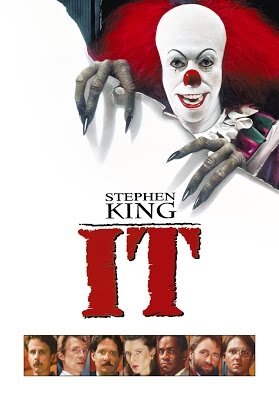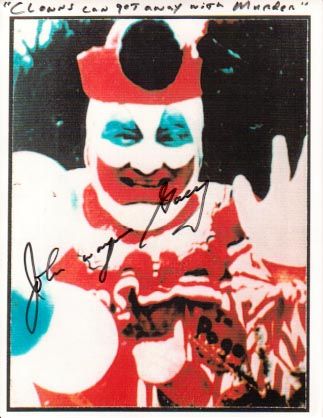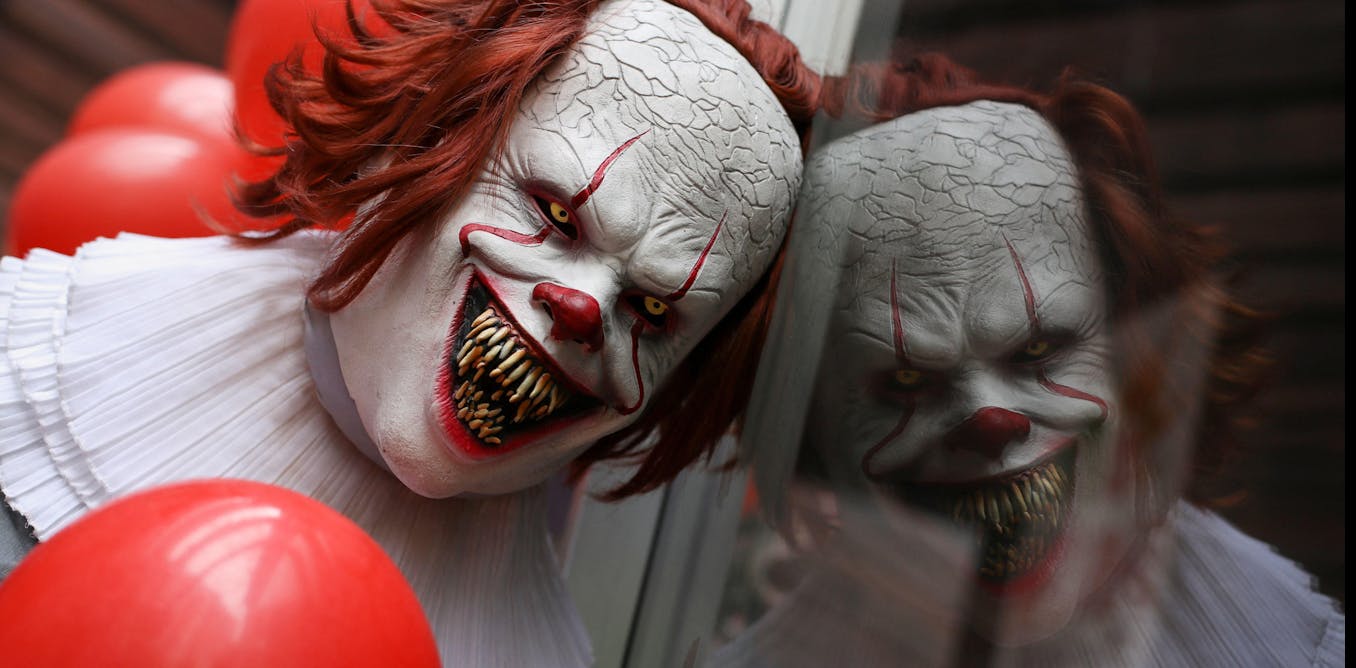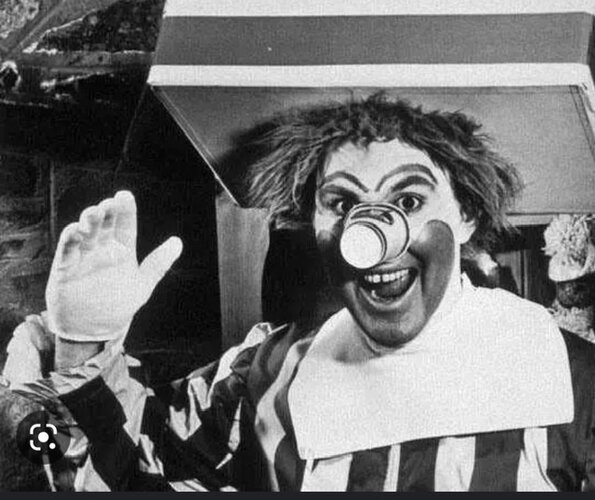- Joined
- Jul 18, 1998
- Messages
- 22,091
- Reaction score
- 45,380
Online
Interesting article, I'm almost tempted to buy the mentioned book about it
=========================================================
NEW YORK (AP) — His nose was round and bright red, his face as white as a sheet. His mouth was surrounded by an exaggerated smear of red makeup and his arched eyebrows hung ridiculously high on his forehead.
Such was the daily uniform of Bozo the Clown, who entertained kids for decades when TV was in its infancy.
It’s also a uniform that for many now seems grotesque and sinister.
The death of longtime Bozo performer Frank Avruch this week triggered both feelings — warm memories from some and a shiver of fear from others who associate clowns more with the film “It.”
Which begs the question: When exactly did clowns go from birthday-party goofy to downright sinister? Well, hold onto your really big shoes — experts are divided.
David Carlyon, author, playwright and a former clown with Ringling Bros. and Barnum & Bailey Circus in the 1970s, argues that the fear of clowns — known officially as coulrophobia — is a relatively new phenomenon, born from the counter-culture 1960s and emerging as a popular force in the 1980s.
“There is no ancient fear of clowns,” he said. “It wasn’t like there was this panic rippling through Madison Square Garden as I walked up through the seats. Not at all.”
Carlyon said clowns were considered sweet and funny for two centuries until an inevitable backlash that included Stephen King’s hit novel “It,” the film “Poltergeist,” Heath Ledger’s white-faced maniac Joker, the misanthrope Krusty the Clown from “The Simpsons,” the shock band Insane Clown Posse and Homey D. Clown from “In Living Color.”
“Anything that gets that much glorification and is sentimentalized within an inch of its life invites someone to snark at it,” said Carlyon, who recently discovered the cover of a National Lampoon from 1979 with a girl cowering in fear of a malevolent clown.
“There’s nothing in any available evidence that kids were afraid of clowns in the ’40s, the ’50s, the ’60s, the ’70s,” he said. “Who said that about Red Skelton?”......................
https://apnews.com/533cac182c5841659222fd99f9d00a83
=========================================================
NEW YORK (AP) — His nose was round and bright red, his face as white as a sheet. His mouth was surrounded by an exaggerated smear of red makeup and his arched eyebrows hung ridiculously high on his forehead.
Such was the daily uniform of Bozo the Clown, who entertained kids for decades when TV was in its infancy.
It’s also a uniform that for many now seems grotesque and sinister.
The death of longtime Bozo performer Frank Avruch this week triggered both feelings — warm memories from some and a shiver of fear from others who associate clowns more with the film “It.”
Which begs the question: When exactly did clowns go from birthday-party goofy to downright sinister? Well, hold onto your really big shoes — experts are divided.
David Carlyon, author, playwright and a former clown with Ringling Bros. and Barnum & Bailey Circus in the 1970s, argues that the fear of clowns — known officially as coulrophobia — is a relatively new phenomenon, born from the counter-culture 1960s and emerging as a popular force in the 1980s.
“There is no ancient fear of clowns,” he said. “It wasn’t like there was this panic rippling through Madison Square Garden as I walked up through the seats. Not at all.”
Carlyon said clowns were considered sweet and funny for two centuries until an inevitable backlash that included Stephen King’s hit novel “It,” the film “Poltergeist,” Heath Ledger’s white-faced maniac Joker, the misanthrope Krusty the Clown from “The Simpsons,” the shock band Insane Clown Posse and Homey D. Clown from “In Living Color.”
“Anything that gets that much glorification and is sentimentalized within an inch of its life invites someone to snark at it,” said Carlyon, who recently discovered the cover of a National Lampoon from 1979 with a girl cowering in fear of a malevolent clown.
“There’s nothing in any available evidence that kids were afraid of clowns in the ’40s, the ’50s, the ’60s, the ’70s,” he said. “Who said that about Red Skelton?”......................
https://apnews.com/533cac182c5841659222fd99f9d00a83








